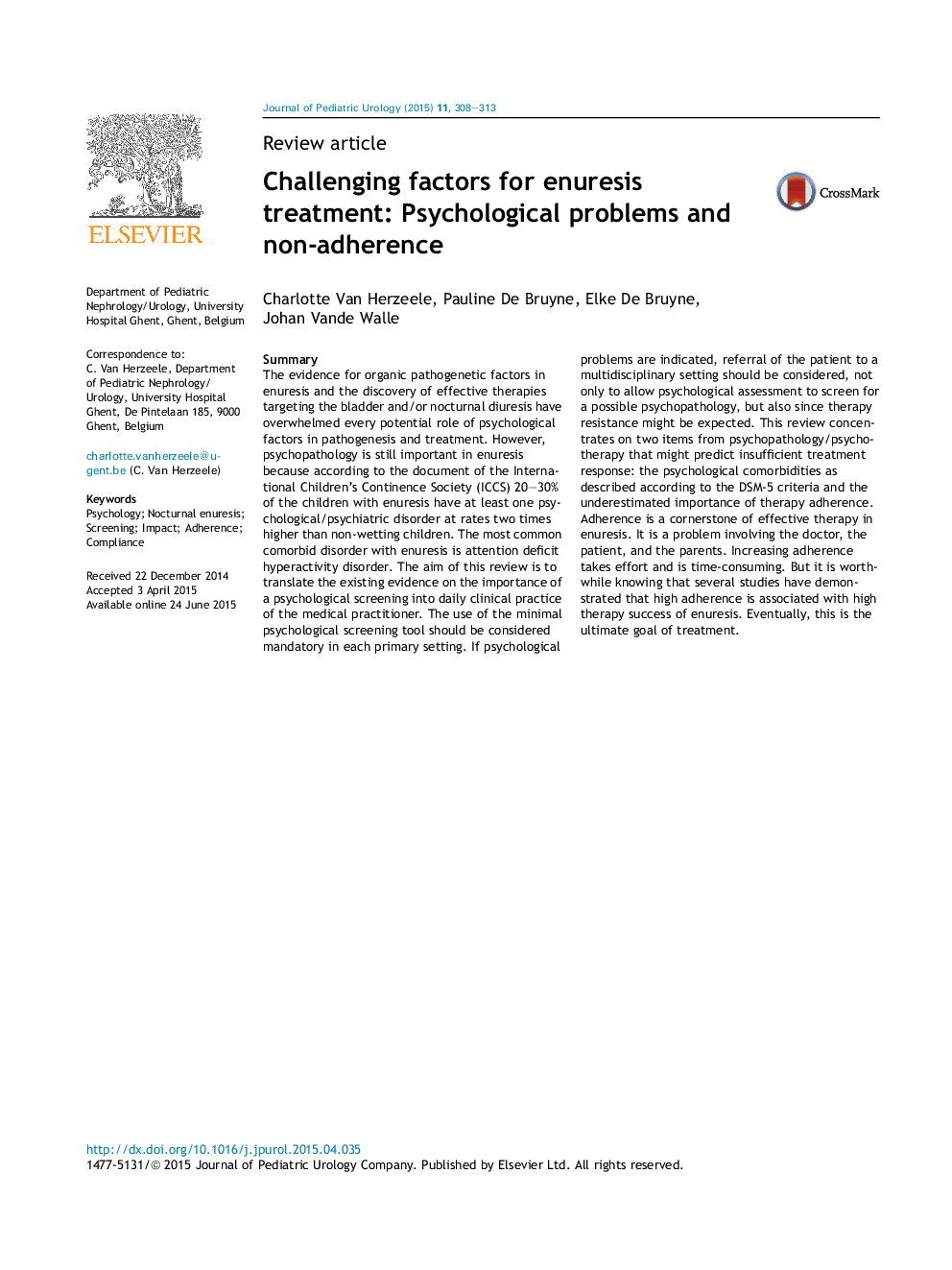| Article ID | Journal | Published Year | Pages | File Type |
|---|---|---|---|---|
| 4161974 | Journal of Pediatric Urology | 2015 | 6 Pages |
SummaryThe evidence for organic pathogenetic factors in enuresis and the discovery of effective therapies targeting the bladder and/or nocturnal diuresis have overwhelmed every potential role of psychological factors in pathogenesis and treatment. However, psychopathology is still important in enuresis because according to the document of the International Children's Continence Society (ICCS) 20–30% of the children with enuresis have at least one psychological/psychiatric disorder at rates two times higher than non-wetting children. The most common comorbid disorder with enuresis is attention deficit hyperactivity disorder. The aim of this review is to translate the existing evidence on the importance of a psychological screening into daily clinical practice of the medical practitioner. The use of the minimal psychological screening tool should be considered mandatory in each primary setting. If psychological problems are indicated, referral of the patient to a multidisciplinary setting should be considered, not only to allow psychological assessment to screen for a possible psychopathology, but also since therapy resistance might be expected. This review concentrates on two items from psychopathology/psychotherapy that might predict insufficient treatment response: the psychological comorbidities as described according to the DSM-5 criteria and the underestimated importance of therapy adherence. Adherence is a cornerstone of effective therapy in enuresis. It is a problem involving the doctor, the patient, and the parents. Increasing adherence takes effort and is time-consuming. But it is worthwhile knowing that several studies have demonstrated that high adherence is associated with high therapy success of enuresis. Eventually, this is the ultimate goal of treatment.
